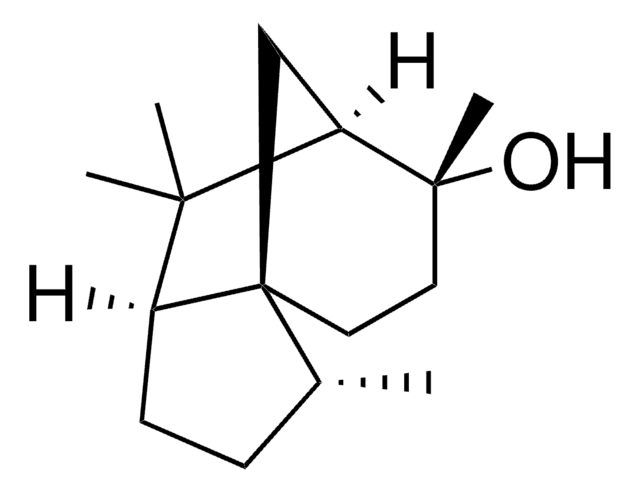77619
Phenol – chloroform – isoamyl alcohol mixture
BioUltra, for molecular biology, 125:24:1
About This Item
Recommended Products
grade
for molecular biology
Quality Level
product line
BioUltra
form
liquid
impurities
DNases, none detected
RNases, none detected
phosphatases, none detected
proteases, none detected
pH
4-5(H2O-phase, after extraction with H2O, 1:1)
density
1.12 g/mL at 20 °C
λ
neat
UV absorption
λ: 330 nm Amax: 0.2
λ: 405 nm Amax: 0.1
λ: 510 nm Amax: 0.1
storage temp.
2-8°C
SMILES string
ClC(Cl)Cl.CC(C)CCO.Oc1ccccc1
InChI
1S/C6H6O.C5H12O.CHCl3/c7-6-4-2-1-3-5-6;1-5(2)3-4-6;2-1(3)4/h1-5,7H;5-6H,3-4H2,1-2H3;1H
InChI key
ZYWFEOZQIUMEGL-UHFFFAOYSA-N
Looking for similar products? Visit Product Comparison Guide
Application
- Simultaneous quantification of multiple RNA cargos co-loaded into nanoparticle-based delivery systems: This research explores the application of the Phenol – chloroform – isoamyl alcohol mixture in extracting high-quality RNA for advanced therapeutic formulations, emphasizing its critical role in nanotechnology and pharmaceutical sciences (Lokras et al., 2022).
- Analysis of Circulating microRNAs and Their Post-Transcriptional Modifications in Cancer Serum by On-Line Solid-Phase Extraction-Capillary Electrophoresis-Mass Spectrometry: Demonstrates the use of the Phenol – chloroform – isoamyl alcohol mixture for precise extraction of microRNAs from biological fluids, contributing to cancer diagnostics and molecular pathology (Pero-Gascon et al., 2018).
- The application of alkaline lysis and pressure cycling technology in the differential extraction of DNA from sperm and epithelial cells recovered from cotton swabs: Highlights the integration of the Phenol – chloroform – isoamyl alcohol mixture with novel technologies for forensic applications, enhancing DNA extraction processes critical in legal and criminal investigations (Nori and McCord, 2015).
- Frequency of Epstein-Barr virus DNA sequences in human gliomas: Utilizes the Phenol – chloroform – isoamyl alcohol mixture for DNA extraction in medical research, facilitating the study of viral presence in cancer tissues and its implications for oncology and virology (Fonseca et al., 2015).
- The critical role of DNA extraction for detection of mycobacteria in tissues: This study underscores the effectiveness of the Phenol – chloroform – isoamyl alcohol mixture in the molecular detection of pathogens, serving as a fundamental technique in microbiological diagnostics and infectious disease research (Radomski et al., 2013).
Physical form
Not finding the right product?
Try our Product Selector Tool.
Signal Word
Danger
Hazard Statements
Precautionary Statements
Hazard Classifications
Acute Tox. 3 Dermal - Acute Tox. 3 Inhalation - Acute Tox. 3 Oral - Aquatic Chronic 2 - Carc. 2 - Eye Dam. 1 - Muta. 2 - Repr. 2 - Skin Corr. 1B - STOT RE 1 Oral - STOT RE 2
Target Organs
Liver,Kidney, Nervous system,Kidney,Liver,Skin
Storage Class Code
6.1A - Combustible acute toxic Cat. 1 and 2 / very toxic hazardous materials
WGK
WGK 3
Personal Protective Equipment
Choose from one of the most recent versions:
Already Own This Product?
Find documentation for the products that you have recently purchased in the Document Library.
Customers Also Viewed
Our team of scientists has experience in all areas of research including Life Science, Material Science, Chemical Synthesis, Chromatography, Analytical and many others.
Contact Technical Service















